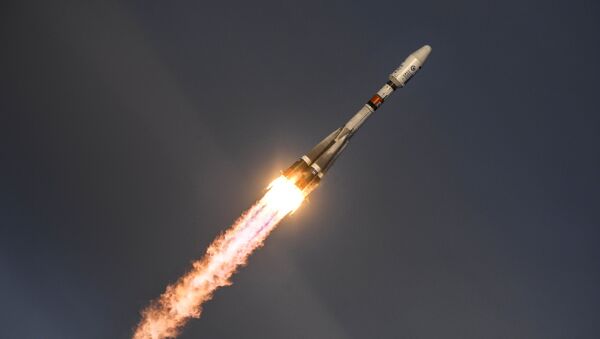"The launch of the Soyuz-2.1b launch vehicle from the Baikonur cosmodrome with Fregat booster and the first hydrometeorological satellite Arktika-M is scheduled for June 2019", the source said.
The equipment installed on Arktika-M satellite will be similar to the geostationary meteorological satellites of the Elektro-L series. Arktika-M will be placed in a highly elliptical orbit, which will allow it to collect meteorological and hydrological information about the state of the Earth's polar regions that are poorly covered by Electro-L.
WATCH: Delta IV-Heavy Rocket With US Spy Satellite Blasts Off From California
Arktika-M will periodically move away from the Earth's surface and shot multi-scale images. It will have a rotation speed different from the Earth's, so that its shooting angle will change continuously.
READ MORE: China Builds World's 1st Arctic LNG Tanker Able to Operate in Winter (PHOTOS)
Earlier, it was reported that the second Arktika-M satellite was scheduled to be launched in 2021. The federal space program of Russia for 2016–2025 also includes plans to launch another three Arktika-M satellites in 2023, 2024, and 2025, but the contract for their production has not yet been concluded.


